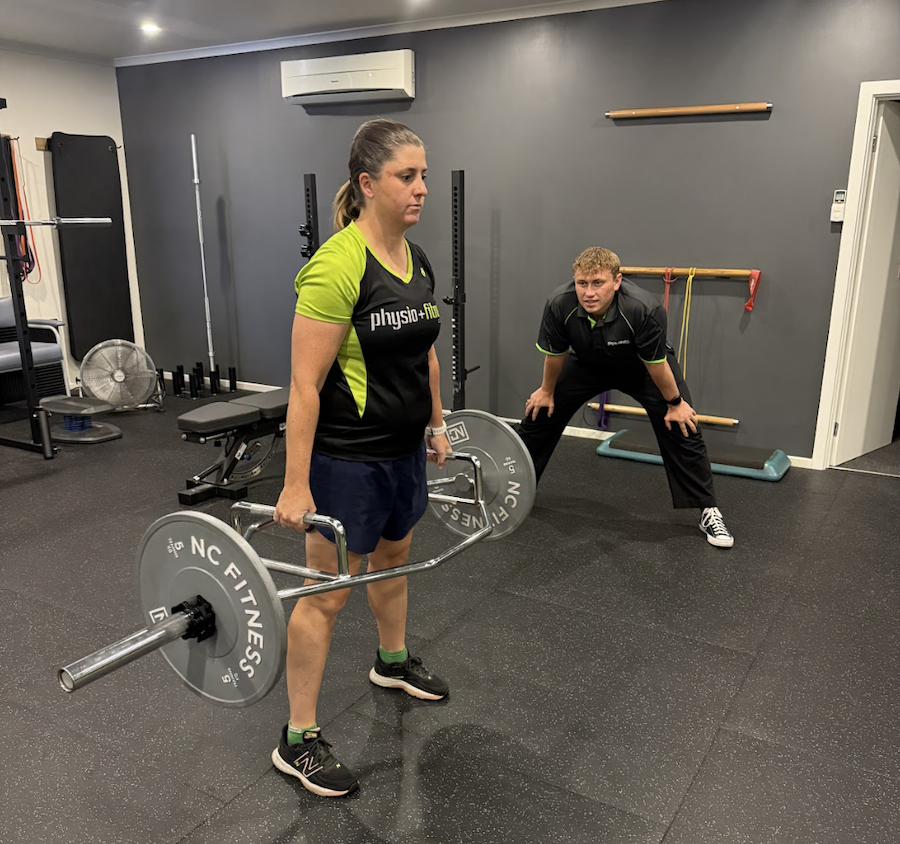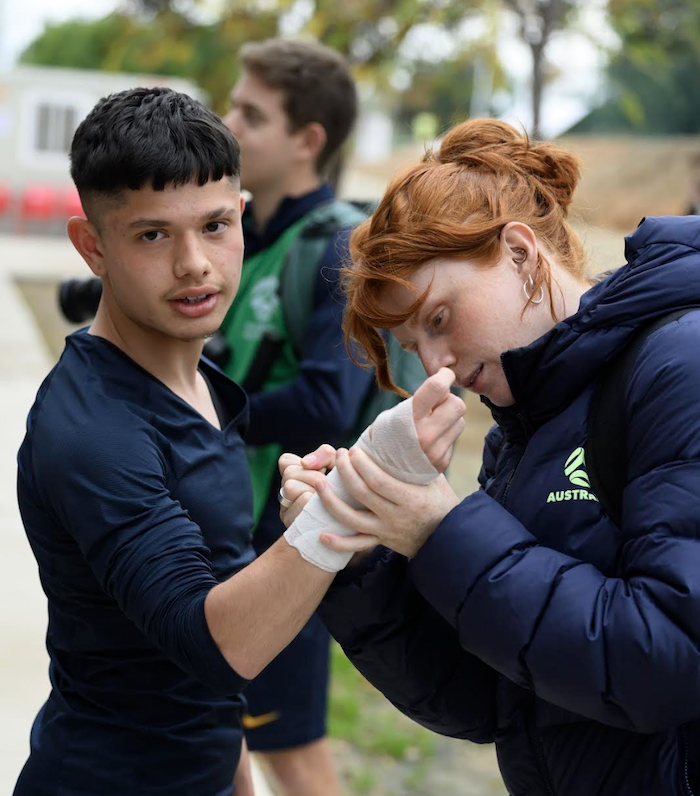Sports Performance
Here at the Physio and Fitness Clinic, we work with a range of different demographics within the physiotherapy space.
One of our main areas of focus is Sports Physiotherapy – physiotherapy and rehabilitation that aims to get people back to performance within your given sport.

Sports Performance
Here at the Physio and Fitness Clinic, we work with a range of different demographics within the physiotherapy space.
One of our main areas of focus is Sports Physiotherapy – physiotherapy and rehabilitation that aims to get people back to performance within your given sport.
Sports Physio
Within the clinic, we have a range of clinicians that specialise in different sports and activities from swimming and athletics, endurance running and triathlons, field sports and more.
There is no sport that we cannot cover and get you back to.
Some exercises and training methods we use include:
- Range of motion
- Muscle endurance
- Maximal strength
- Reactive strength
- Ballistic / Explosive strength (eccentrics)
- Static balance
- Dynamic balance
- Proprioception
- Neural length / rigidity
- Acceleration / Deceleration
- Change of direction ability
- Perturbation capacity

Sports Physio
Within the clinic, we have a range of clinicians that specialise in different sports and activities from swimming and athletics, endurance running and triathlons, field sports and more.
There is no sport that we cannot cover and get you back to.
Some exercises and training methods we use include:
- Range of motion
- Muscle endurance
- Maximal strength
- Reactive strength
- Ballistic / Explosive strength (eccentrics)
- Static balance
- Dynamic balance
- Proprioception
- Neural length / rigidity
- Acceleration / Deceleration
- Change of direction ability
- Perturbation capacity
Pre/Post Sport/Event Myotherapy
Book in with our Myotherapist Georgia, for a pre or post event myotherapy session.
When to have them
Why
How it differs
FAQ
Will it hurt?
No this is a session designed so you won’t pull up sore, just released.

Pre/Post Sport/Event Myotherapy
Book in with our Myotherapist Georgia, for a pre or post event myotherapy session.
When to have them
Why
How it differs
FAQ
Will it hurt?
No this is a session designed so you won’t pull up sore, just released.
SPORTS PHYSIO FAQs
Q. What is the difference between Sports Physiotherapy and Physiotherapy?
A.
The main difference between the two is that one is more attentive to your specific sport, and has a focus of not just getting you pain free, but improving your performance.
In any sport, there are specific movement patterns that need to be developed. Here at PFC, we aim to make sure we are tailoring your rehab and training to that specific sport and skill, to truly get you as prepared as possible to be back into what you love, feeling robust, and niggle free.
Q. Why do you train so many different physical systems?
A.
Q. What is perturbation training?
A.
Perturbation is a deviation of a system, moving object, or process from its regular or normal state or path, caused by an outside influence.
We can use perturbation in training to help build the body’s ability to stabilise itself. If our systems are more robust and stable in the face of perturbation, we have a better ability to avoid certain movements that can cause injury.
Perturbation is also great to build control in people with hypermobility.
Q. Do you work with ACLs?
A.
Here at PFC, we have an amazing gym space, with an array of equipment and room to work with ACL repair / conservative athletes.
Luke Walker, our Head of Physiotherapy, has a special interest in ACL rehab, and is always excited to work with athletes / general population to maximise their ACL rehab process.
Luke also had links with strength and conditioning facilities for strength and attribute testings, to make sure you are hitting all your performance goals before moving to the next stage of your ACL journey.
Q. What is reactive strength and plyometric exercise?
A.
Reactive strength involves training that is closer to the speed section of the force velocity curve. Reactive strength is needed to become faster and more efficient.
Plyometric exercises help develop reactive strength. At its core, plyometrics are simply continuous exercises that make us more ‘springy’. They help us develop tendon stiffness, and also trigger our nervous system to assist in the movement.
Ultimately, this makes us a more dynamic athlete, as well as deloading the demand needed by the muscles, capitalising on the nervous system.
Q. What equipment do we use?
A.
Q. Do you have force plates for performance assessments?
A.
